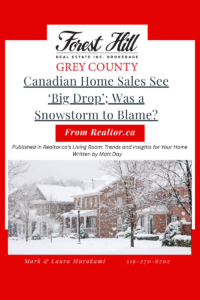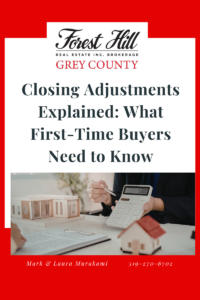Thinking about selling your home? Any idea how much you can realistically expect to get for it? Your best option is to contact a local Realtor® you trust who has done business in your neighbourhood and request a no-cost market evaluation. If you’re not quite ready for that but still want to get a rough idea of where you stand, you can assume your property would probably fetch about as much as your neighbors got, as long as they sold their house recently (the last 3 months or less is the ideal time frame) and their home and their lot was similar to yours.
In rural areas like Grey County, finding a few similar properties can be a bit more difficult. Knowing how much those similar properties, called comparable sales (or in real estate lingo, comps) sold for gives you the best idea of the current estimated value of your own. But the trick is finding relevant sales that closely match yours.
What makes a good comparable sale?
Your best comparable sale would be a house that’s the same model as yours in the same subdivision—but we live in Grey County where it’s more likely that your property is NOT a cookie-cutter home, your lot may be a completely different size than your neighbours’ and if you live in a rural setting, finding a close match can be difficult. That’s where an experienced Realtor® comes in handy
Your Realtor® knows the key factors to focus on:
Justifiable sale prices: You may want to rely on a comparable sale that set sale price records when the market was at the peak of activity, but like it or not, that is not in your best interest. Over priced properties often don’t sell – they sit on the market while everything around them sells. Also worth remembering, most buyers need mortgages and lenders need to make sure they’re lending the amount of money the property is actually worth. If your buyer agrees to pay substantially more than that, there’s a decent chance that an appraisal won’t verify the inflated property value and in some cases this means the entire deal falls apart. You’re much better to avoid the extra unnecessary stress and price your property at fair market value. If the market dictates that it sells above that price then an appraiser should be able to justify the sale price as reasonable for that market.
Home type and lot size: Most important are comparable sales that match your property’s key details: lot size, size of home (finished and unfinished square footage), style, number of bedrooms and bathrooms, construction material and finishes.
Location: A recent sale that’s close to your property does make a good comparable, but don’t refer to just any comparable sale that’s nearby. A good comparable sale is a house in your immediate neighborhood, in the same type of setting as your house, and in your school district.
Amenities and upgrades: Did you just put in a new kitchen? Does the comparable sale house have central A/C or in-floor heat? Does it feature crown molding, a beautiful new deck, or a pool? Are you close to the same amenities (hiking trails, ski clubs, rec facilities, the lake, etc.)?

Remember, comps only tell you part of the story!
Your Realtor® can help you fine tune your asking price based on experience and insights.
Even if you live in a subdivision, your home will always be different from your neighbors’. Evaluating those differences—like the fact that your home has one more bedroom than the comparables or a basement office or sits on a 7 acre parcel instead of 1/4 acre town lot — is just one of the areas where expert knowledge and advice will prove useful.
An active agent has been inside a lot of homes in your area and can find out how long they took to sell, how many times the asking price was adjusted, how many offers were received and all sorts of other details about local comparable sales. S/he knows how those properties were perceived by other agents, their buyers, lenders and appraisers. All of that information will prove to be priceless when it’s your turn to sell.




